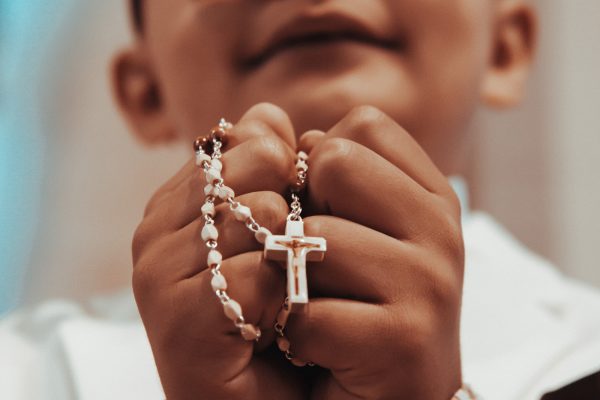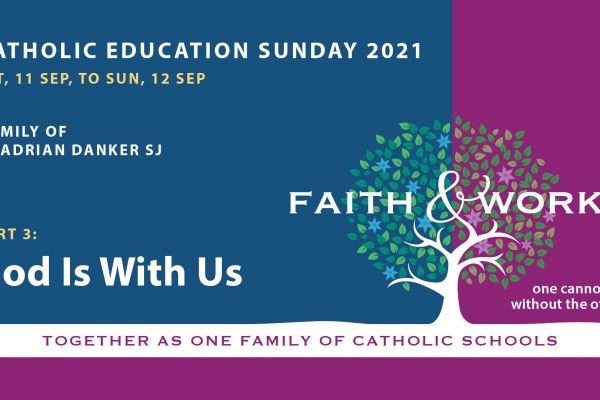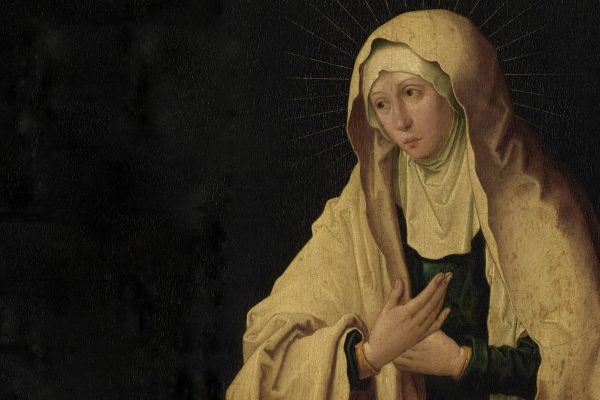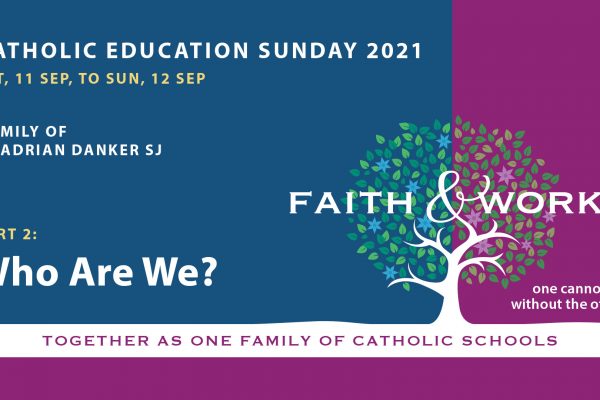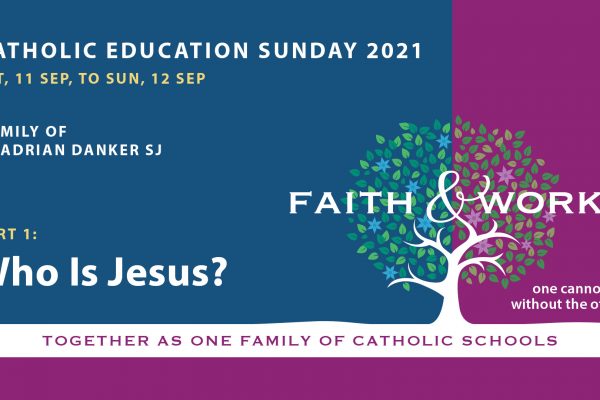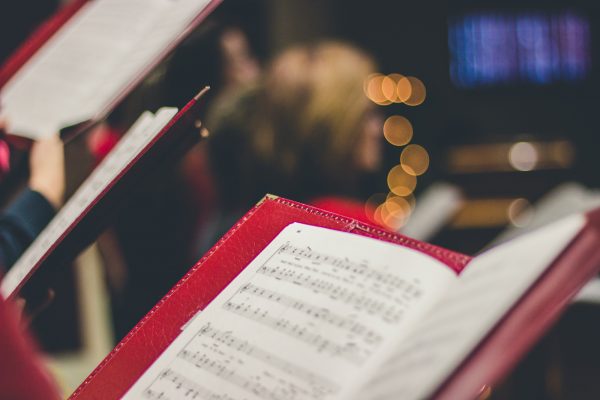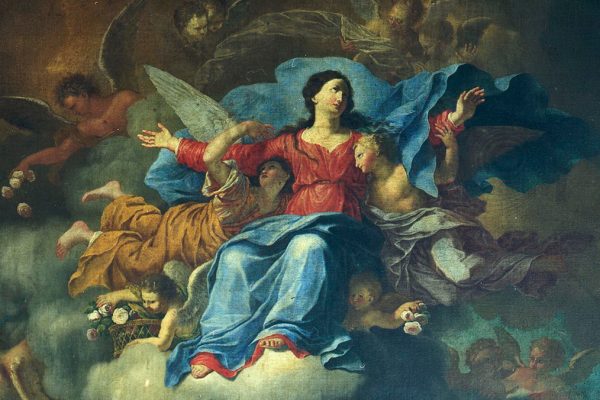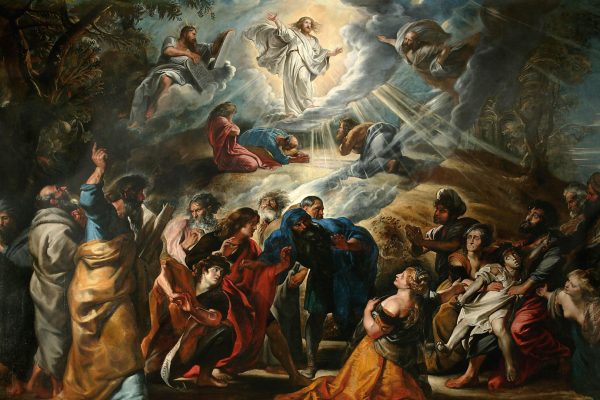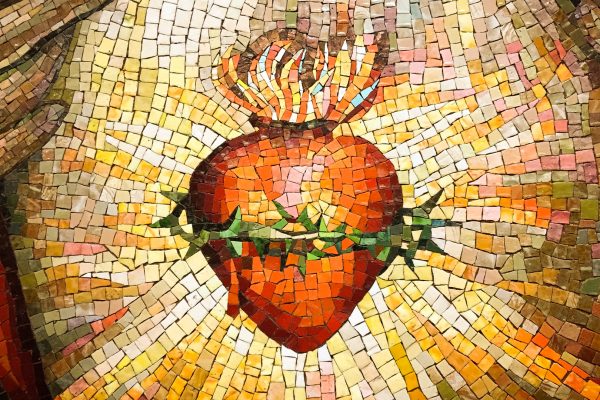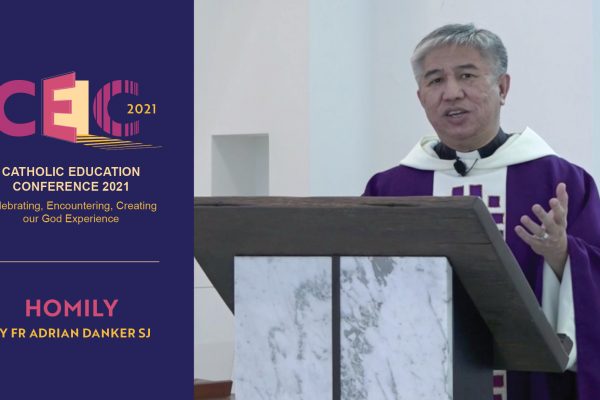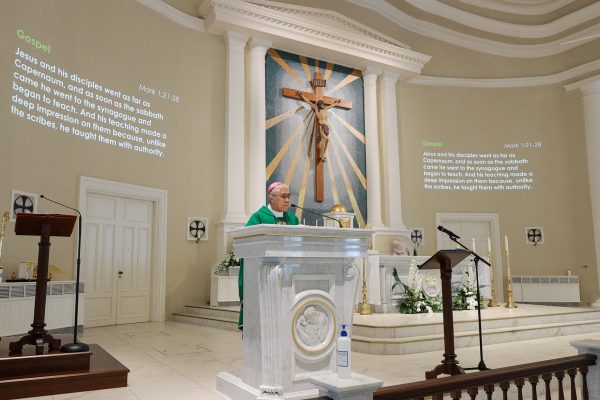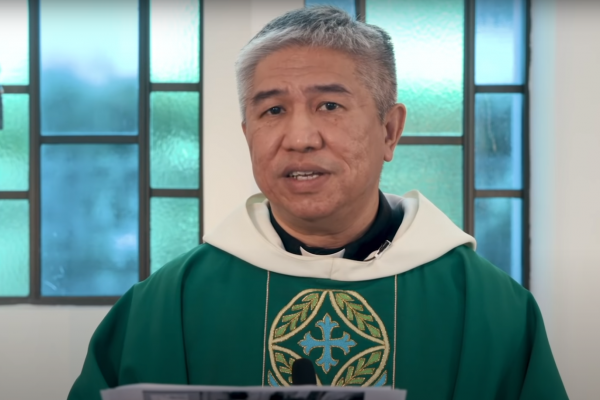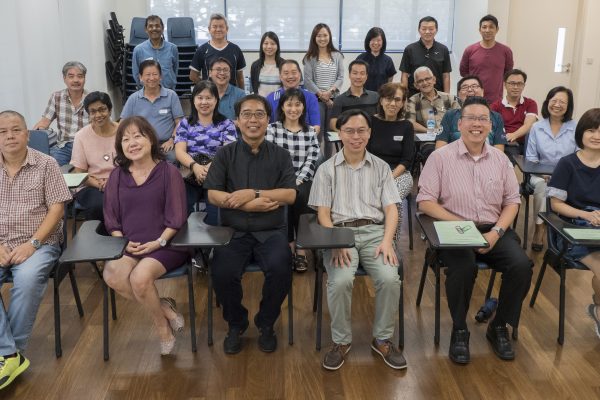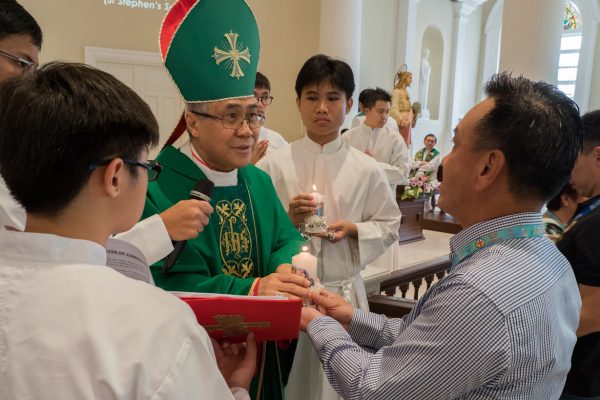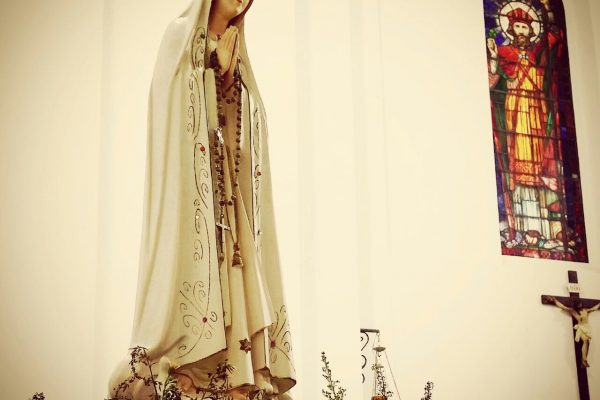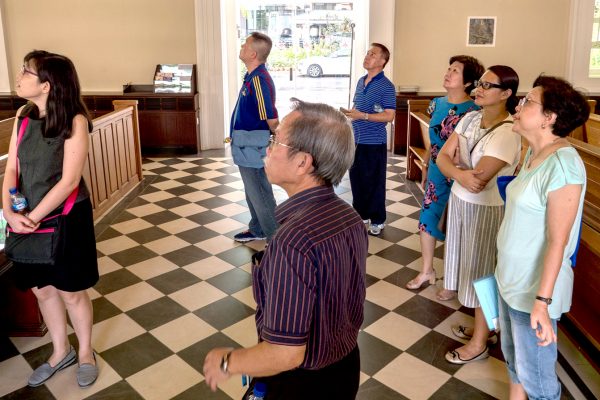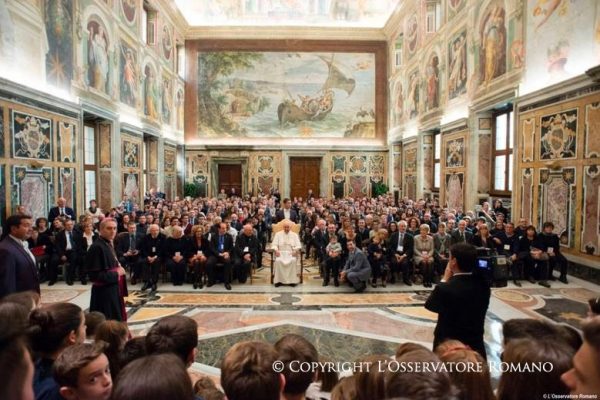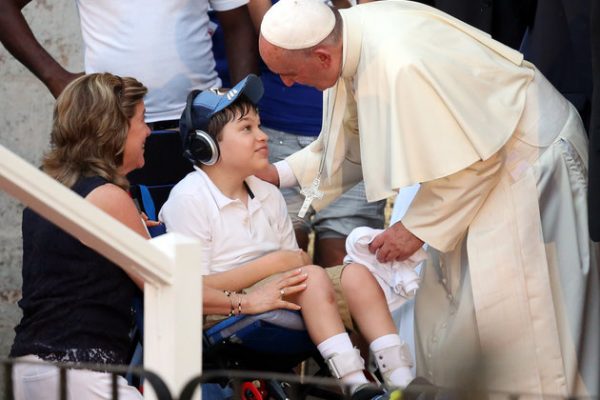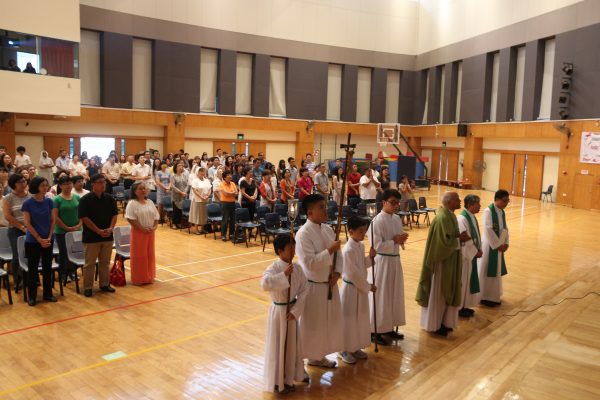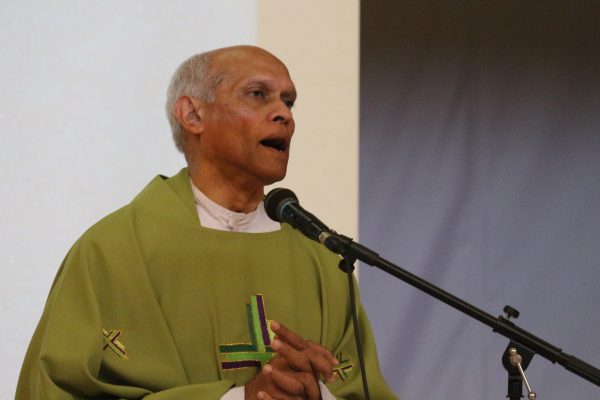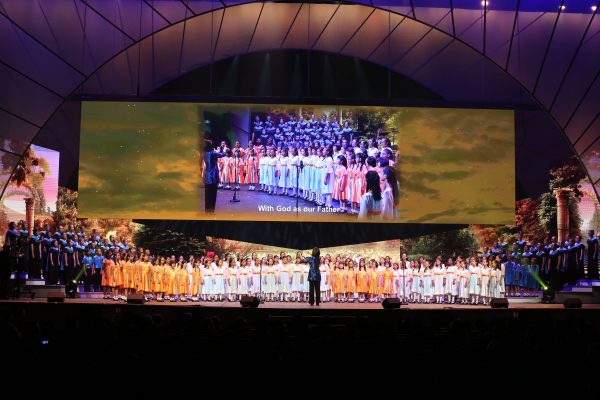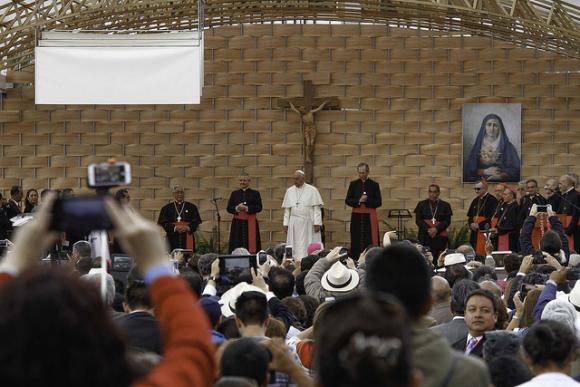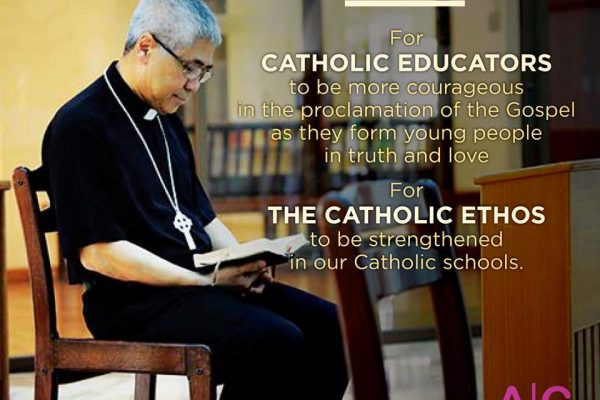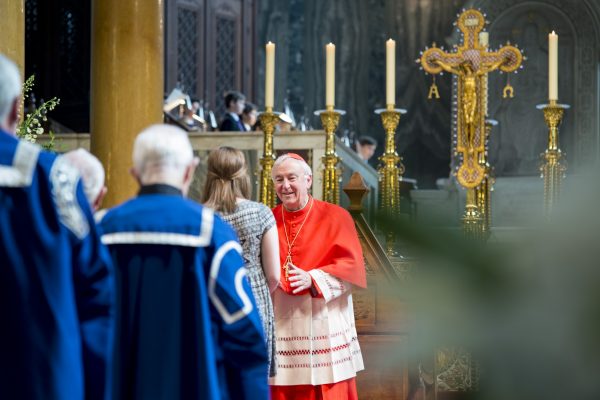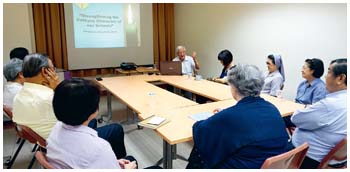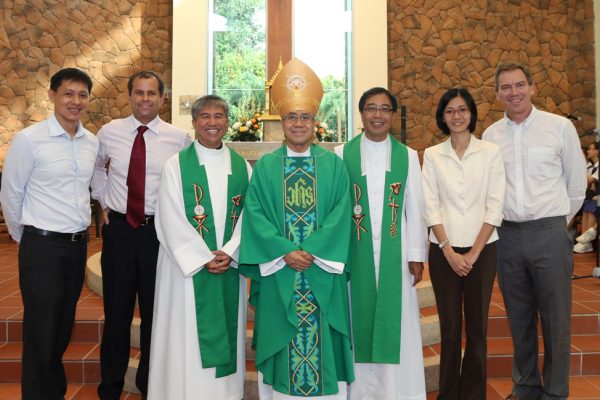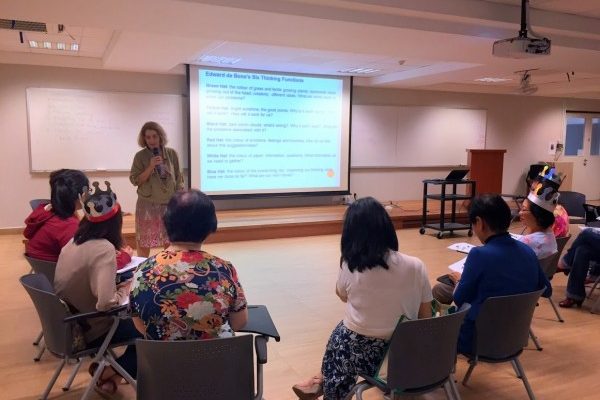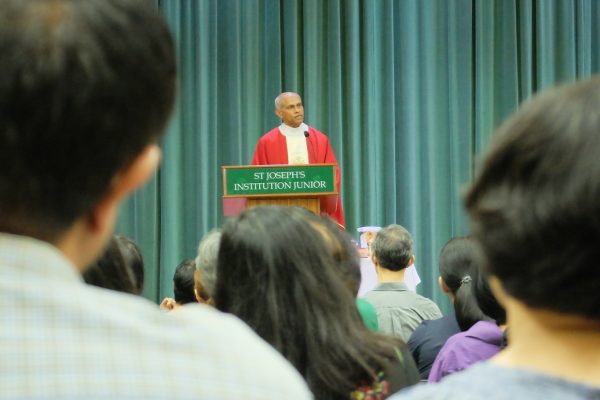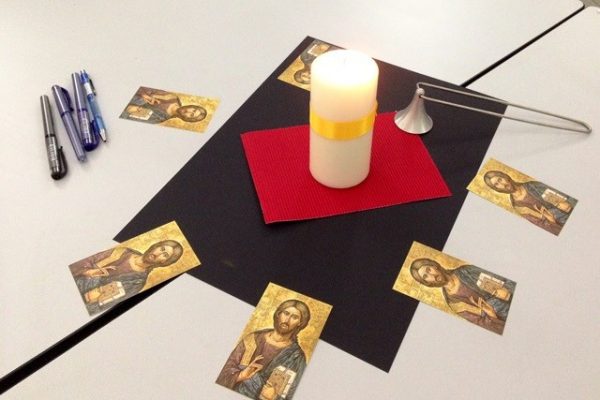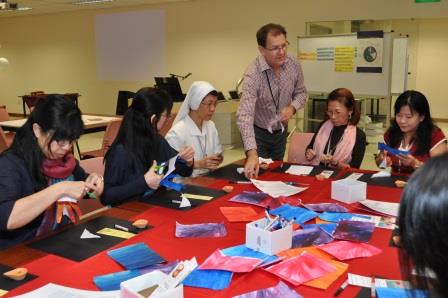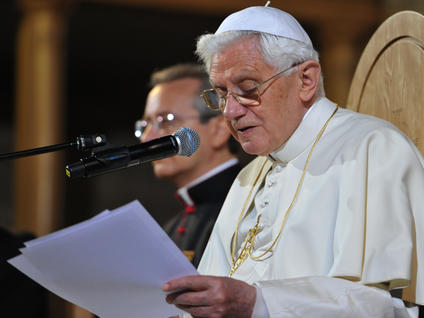
Pope John Paul II on the school’s role in catechesis
The following is from Pope John Paul II’s Apostolic Exhortation Catechesi Tradendae, given this day, 16 October, in 1979.
69. Together with and in connection with the family, the school provides catechesis with possibilities that are not to be neglected. In the unfortunately decreasing number of countries in which it is possible to give education in the faith within the school framework, the Church has the duty to do so as well as possible. This of course concerns first and foremost the Catholic school: it would no longer deserve this title if, no matter how much it shone for its high level of teaching in non-religious matters, there were justification for reproaching it for negligence or deviation in strictly religious education. Let it not be said that such education will always be given implicitly and indirectly. The special character of the Catholic school, the underlying reason for it, the reason why Catholic parents should prefer it, is precisely the quality of the religious instruction integrated into the education of the pupils. While Catholic establishments should respect freedom of conscience, that is to say, avoid burdening consciences from without by exerting physical or moral pressure, especially in the case of the religious activity of adolescents, they still have a grave duty to offer a religious training suited to the often widely varying religious situations of the pupils. They also have a duty to make them understand that, although God’s call to serve Him in spirit and truth, in accordance with the Commandments of God and the precepts of the Church, does not apply constraint, it is nevertheless binding in conscience.
Admittedly, apart from the school, many other elements of life help in influencing the mentality of the young, for instance, recreation, social background and work surroundings. But those who study are bound to bear the stamp of their studies, to be introduced to cultural or moral values within the atmosphere of the establishment in which they are taught, and to be faced with many ideas met with in school. It is important for catechesis to take full account of this effect of the school on the pupils, if it is to keep in touch with the other elements of the pupil’s knowledge and education; thus the Gospel will impregnate the mentality of the pupils in the field of their learning, and the harmonization of their culture will be achieved in the light of faith. Accordingly, I give encouragement to the priests, religious and lay people who are devoting themselves to sustaining these pupils’ faith. This is moreover an occasion for me to reaffirm my firm conviction that to show respect for the Catholic faith of the young to the extent of facilitating its education, its implantation, its consolidation, its free profession and practice would certainly be to the honor of any government, whatever be the system on which it is based or the ideology from which it draws its inspiration.










